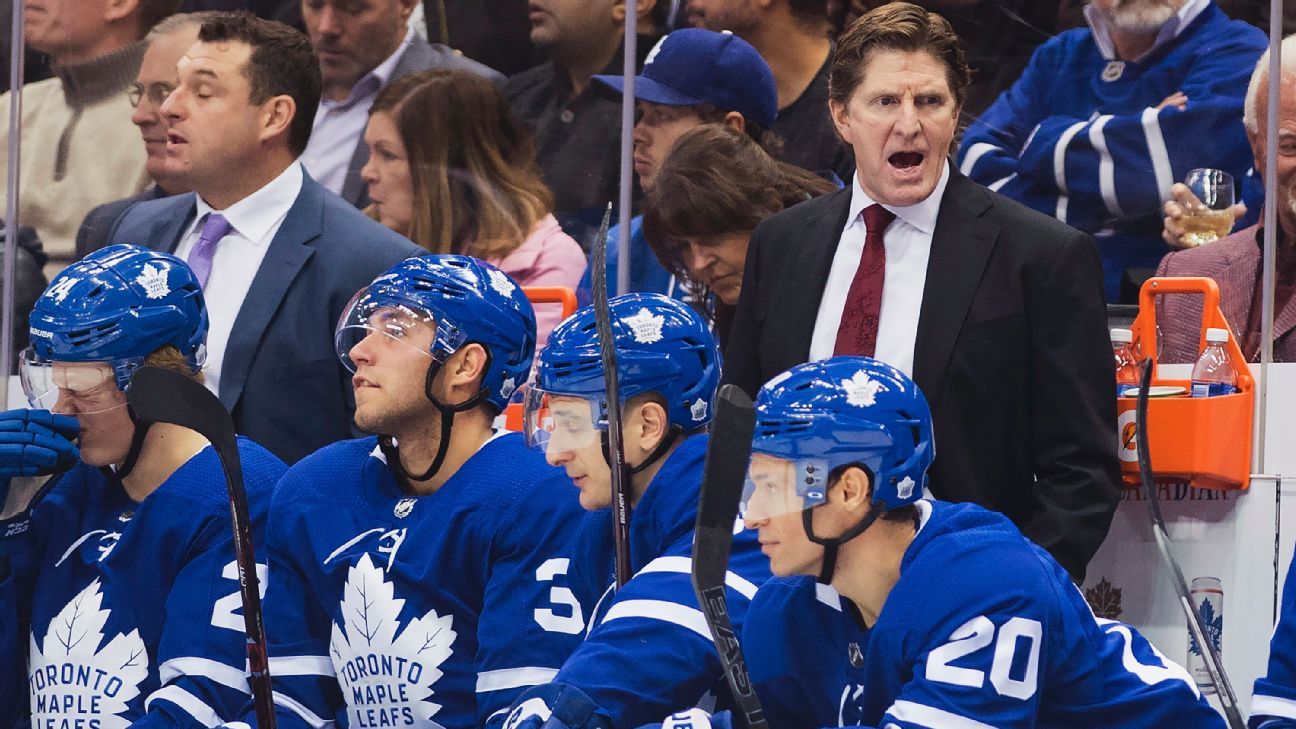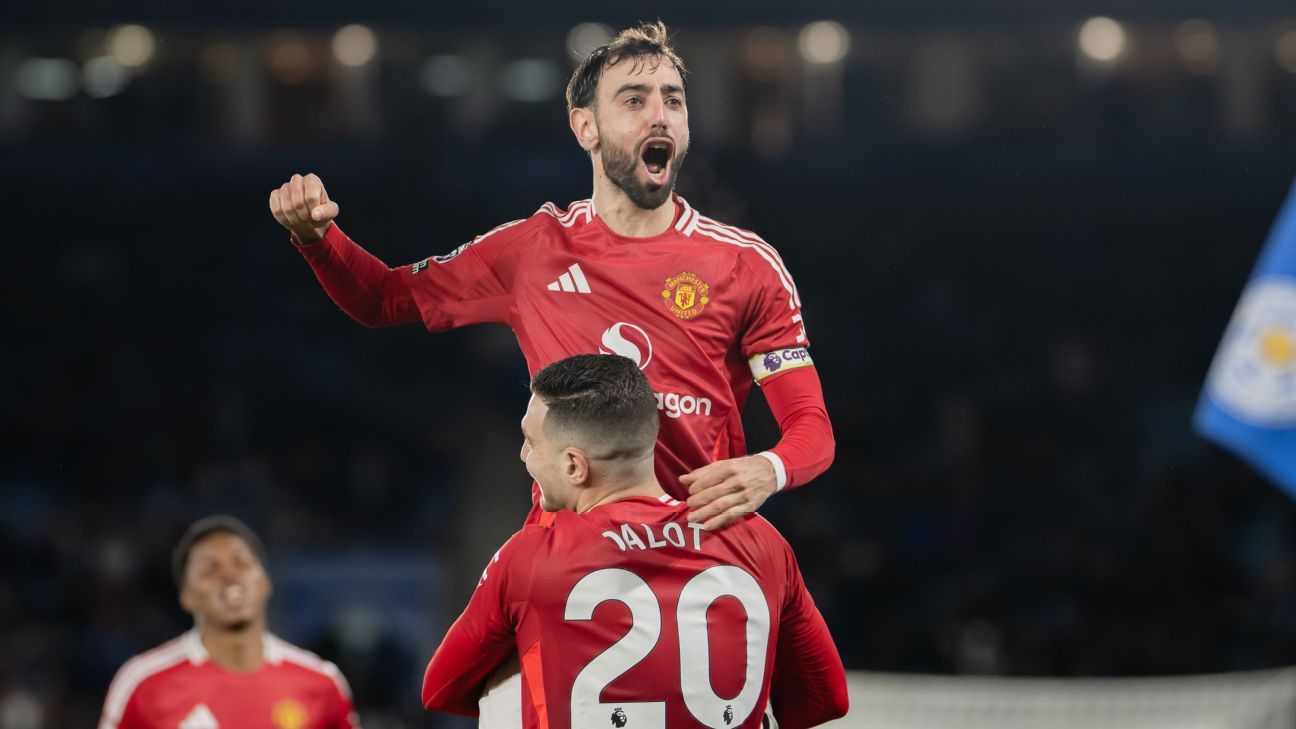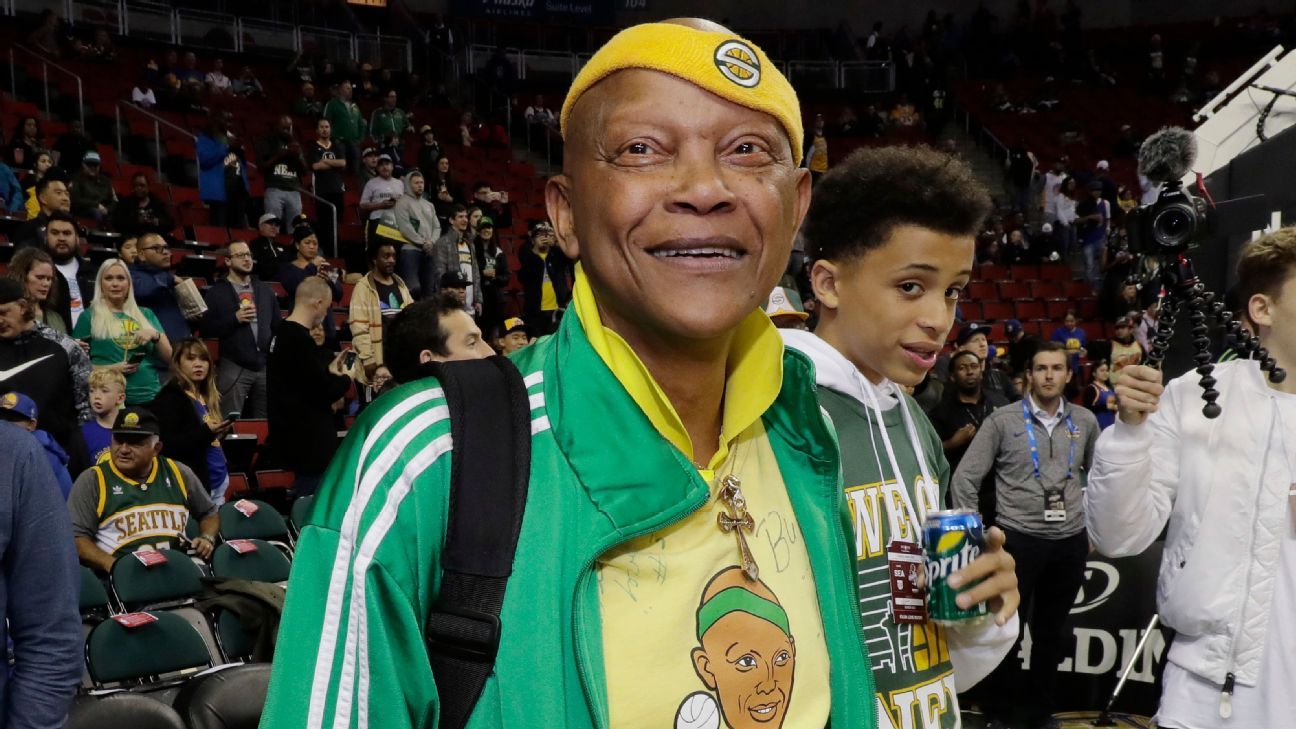
PEBBLE BEACH, Calif. -- Toronto Maple Leafs president Brendan Shanahan on Tuesday said Mike Babcock's coaching tactics were not "appropriate or acceptable," addressing allegations of mental abuse by the team's former coach for the first time.
"Times are evolving. We have to evolve," Shanahan said at the NHL Board of Governors meeting. "We all came from a certain generation where things occurred to us as players that we just sort of accepted. We all have to do a better job of just creating that kind of work environment on the ice and off the ice."
Babcock, who was fired by Toronto on Nov. 20 after five seasons, has seen his reputation as one of the NHL's top coaches tarnished by accusations of abuse while with the Detroit Red Wings and the Maple Leafs .
Shanahan's former Detroit teammate Johan Franzen accused Babcock of "verbal attacks" that, at one point, caused Franzen to break down on the bench and dread coming to the arena, he told Swedish media outlet Expressen.
"I played with Johan Franzen for Mike Babcock. I sat with Johan a couple of years ago in Detroit, talked about things in general, and it never came up," Shanahan said. "But I don't dispute for a second that Johan is telling an experience that did in fact happen.
"He and I and many others come from a generation where we didn't speak about that stuff immediately. And now, I think players are choosing to speak up more often. And I applaud him for having the courage to do that. It wasn't something that I was aware of. I wasn't on the team when this occurred. He didn't bring it up to me. The fact that people are taking the time now to get things off their chest is very important."
Another accusation concerning Babcock's tactics came from his time in Toronto. When forward Mitch Marner was a rookie, Babcock had him make a list of his teammates ranked by how much effort they gave on the ice. Babcock then shared the list with the players who were at the bottom of that ranking, much to the embarrassment of Marner.
The incident was reported to general manager Lou Lamoriello, who is now with the New York Islanders.
"Much was made of the incident with Mike a few years ago with Mitch Marner, for instance. I know our GM at the time called me and let me know about it right away and addressed it right away with Mike," Shanahan said. "Mike apologized to Mitch. There was communication with our GM at the time and the agent and the family. It wasn't something that was appropriate or acceptable to us. Since then, my general managers -- whether it was Lou or Kyle -- never came to us with a situation like that. But absolutely, is it a highly charged atmosphere? Is it an atmosphere where players and coaches want to sometimes go back and do things a little bit better? Absolutely."
The accusations against Babcock came during what's been called a "reckoning" in the NHL coaching community.
Calgary Flames coach Bill Peters resigned after corroborated allegations that he used a racial slur toward former NHL player Akim Aliu when they were in the American Hockey League, and that he physically assaulted two players with the Carolina Hurricanes while he was the head coach. The Chicago Blackhawks placed assistant coach Marc Crawford on administrative leave pending an investigation into allegations he kicked and choked former players, as well as used "homophobic slurs" toward former NHL player Patrick O'Sullivan.
The NHL on Monday released a four-point plan: a "zero tolerance" policy for teams that don't report incidents to the league; severe punishments for coaching abuse; an education program that all coaches and general managers will have to go through annually on diversity and inclusion; and a hotline for team personnel to report abuse by officials anonymously to the NHL.
"You have to be able to evolve with the times. You have to be able to reflect and in some cases apologize for past behaviors," Shanahan said. "But I think that the focus for most of us right now is now to be better moving forward."
Shanahan cautioned against grouping the accusations against Babcock with the other racial and physical abuse recently reported about other NHL coaches, but he said that ultimately it comes down to what the players want out of a work environment.
"I think it's a little dangerous when you just start sort of linking everyone together. I don't know why. ... I think you have to look at each specific case on its own," Shanahan said. "I think it's a little bit unfair to group everybody all in one. But I do think it reflects that players today are more equipped and better equipped at communicating how they want to be motivated. And we have to listen to them."















 Phone: (800) 737. 6040
Phone: (800) 737. 6040 Fax: (800) 825 5558
Fax: (800) 825 5558 Website:
Website:  Email:
Email: 






